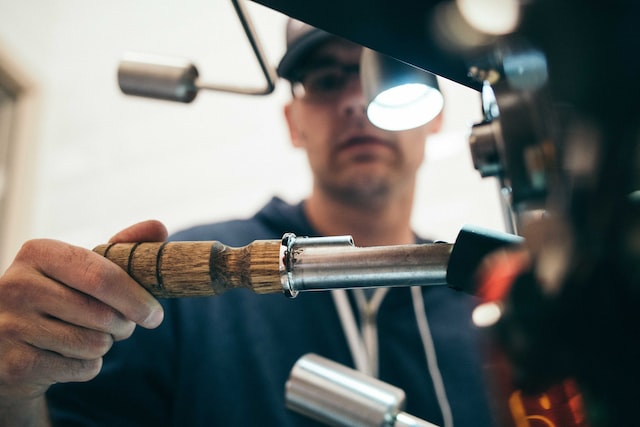
You’re sound asleep one night, and then you’re suddenly awakened by the sound of water dripping—this is every homeowner’s nightmare. Plumbing problems aren’t just cumbersome to deal with, but they could also be expensive. Some prevalent and regularly occurring household plumbing problems include broken or rusted pipes, clogs, and leaks.
Giving your plumbing system a little more care is vital to prolonging its life and preventing costly repairs and replacements. It may sound quite technical, but it’s easily something every homeowner can get the hang of. That is, of course, given that you’re willing to learn more about the care and attention your plumbing system needs.
This article would be a guide that homeowners can use to keep their plumbing system well-maintained. Read on.
Get Hold Of A Trusted Plumber
Residential or commercial structures are incomplete and dysfunctional without a sound plumbing system. Given all the essential functions a plumbing system has to keep up with, such is the workhorse of any building.
Imagine waking up one day to the horror of clogged drains or leaking pipes. Small or big, those are enough to send homeowners out into a frenzy for help. With that said, it pays to have the contact information of a trusted plumber you can call anytime an emergency arises.
With a trusted plumber, you can have them visit your home and check your pipes regularly to prevent minor problems from escalating into bigger ones. This proactive approach keeps you on top of your plumbing system’s good condition.
Getting to this point, however, takes a lot of time, research, and trial and error. Lucky for homeowners today, technology is on their side, with resources readily available on the Internet. It only takes a quick search for names of emergency plumbing services that come highly recommended, with good feedback and reputation.
Use Drain Screens On Sinks And Other Drainage Systems
Drain screens are small, simple, and inexpensive, but they’re an effective way to keep the entire plumbing system well-maintained. Remember that even something as thin as a strand of hair can wreak havoc on your drains once those little strands accumulate into bigger clumps. Other common culprits are big chunks of food, egg shells, and other trash.
Install a drain screen or mesh on your sinks’ drainages to prevent those from going through your drains. This proactive approach makes a world of difference in now being able to control what goes down the drain.
Check Your Home’s Water Pressure
On average, most homes should have a water pressure of anywhere between 40 to 50 psi. Having water pressure that’s higher or lower than those levels could mean a problem with your plumbing system. Low water pressure can often be a sign of leakage somewhere in the plumbing system. Meanwhile, high water pressure weakens the pipe’s joints, making them more prone to bursting.
Checking your home’s water pressure is now more doable, with water pressure gauges available in almost every major hardware store. Call your trusted plumber to install a regulator if it’s too high or too low.
Regularly Check For Leaks
A leak that suddenly happens out of nowhere is one of the most common telltale signs of a plumbing problem. If luck is on your side, that leak can mean only a minute problem. However, when you turn a blind eye to it with inaction, that small leak can immediately progress into an even bigger issue.
Leaks under the sinks are easy to spot. There are also leaks in concealed pipes hidden in the walls. For the latter, the way to check for those is by looking for damp or wet areas. Observe your walls and floors, too, if there are watermarks or visible water damage. Lastly, an increase in your water meter reading without an increase in water consumption is another sign that your plumbing is leaking.
Call your plumber as soon as possible once those first few signs of leaking appear. Don’t put this off until later.
Inspect The Water Heater Regularly
As you check around for leaks once in a while, give the same attention to your water heater. While you may not be the best individual to mess around and do DIY repairs and adjustments with the heater, at least take the time to look for signs of water heater issues like the following:
- Puddles and leaks around the floor where the water heater is located;
- Rusting and strange noises like banging or rattling;
- Leaking or moisture around the pipes and units.
A good rule of thumb is that homeowners with a traditional water heater should aim to drain the water tank heater at least once a year to eliminate any sediments. The building up of deposits causes the water heater to work harder, speeding up its aging and raising your electricity bills.
If you don’t feel confident doing this yourself, let your trusted plumber visit your home once a year to clean your water heater tank. This way, you’d be sure it’d be done thoroughly.
Install A Water Softener
Homeowners who live in a location known for hard water can do with a water softener to minimize water deposits in their plumbing systems. This additional expense is a good investment in the long run as it helps preserve your plumbing system’s condition.
Hard water causes mineral deposits to accumulate and cause blockage in the piping fittings and systems. In the long run, your pipes and fittings can get damaged sooner than they should.
Bottomline
Plumbing problems, whether big or small, are bound to happen every so often. And almost not surprisingly, those plumbing problems always seem to occur at the worst possible time. This may be what it seems, but the truth is those plumbing emergencies could’ve already been little problems that have long been brewing.
It takes a responsible homeowner who believes in a proactive approach to keeping their plumbing system well-maintained. You can be that type of homeowner now that you’ve been fueled with the guide above. Consider the ideas mentioned here as you plan and prepare.


